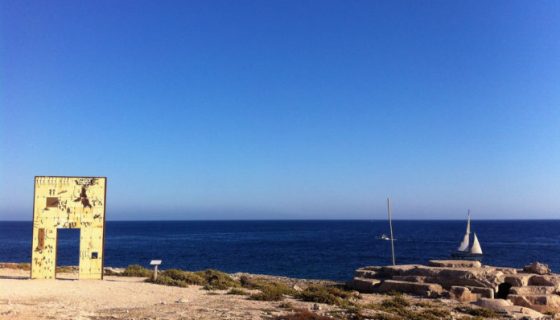- Mediterranean Hope - Federazione delle chiese evangeliche in Italia
- mh@fcei.it
Understanding Violence. Stories of Daily Reception
ITALIAN VERSION
Osvaldo Costantini – NEV
Scicli, Ragusa, September 9th 2015 – “I would like to go to Bari”, says Perfect, speaking English fluently. She was at the House of Cultures/Mediterranean Hope a few days ago. She told us she left Libya with her two daughters, leaving behind her husband because they did not have enough money for him to travel. The family fled together from religious conflicts in Nigeria, and lived in Misurata for about two years. Perfect is concerned about the fate of her husband, but she insists she want to go to Bari, where she has an aunt. She would like to build her new life there. Here project is not only to find a good job, but also to fulfill her dream: to become a lawyer.
In a private meeting, she said she would like to get a better life in Italy. “What does it means a better life?”, “What is a better life?” we asked her. Her answer was fascinating. “A better life means living in a place where you are free to fight for your rights”. Lessons of Democracy. The House of Cultures is a place of transit: just minors with relatives in Italy or Europe could stay there longer. They are part of a project called “relocation desk”, i.e. relocation through family reunification. Perfect is nineteen and she cannot remain in the centre: the operators there shall now draw up a plan to transfer her to Bari. At the centre, Perfect attends a number of activities and is granted psychological support by the local psychologist from the Terre des Hommes team: she focus her work mainly on the anxiety Perfect feels for the fate of her husband and on her memories of the violence she witnessed in Libya. While the procedures for her transfer are underway, Perfect attends the Italian classes organized by Terre des Hommes, so that her time at the centre can be useful. The process is dragging, partly because of the slowdown in the activities of public offices during the summer. The nineteen-year-old Nigerian is increasingly stressed. Perfect handles the stress caused by living in this limbo ‒ only partially comprehensible and caused by lengthy procedures ‒ just through the centre’s operators support. Operators work to speed up her case: an asylum request would allow Perfect to get asylum seekers protection. Meanwhile, the Central Service must identify a structure, in the area of Bari, available to accept her. A month passed, and Perfect could not handle the stress anymore; during a hot Sicilian afternoon, she had a nervous breakdown. She tried to stop cars in the middle of the street, asking for a ride to Nigeria. The centre’s operators followed her and tried to calm her down. Worried locals called the police. It was explained to them that this was not a public disorder case that the situation was under control. For privacy reasons, it was not possible to tell them she was a victim of violence and that police presence could have upset her. Perfect went on stopping cars while uttering few meaningless words. After two hours under the sun, the operators were able to bring her back to the centre. Here, Perfect cried desperately, lingering on memories of the violence, she endured the attempted rape in Libya, the cold-blooded killing of a friend who lived with her and her husband. Stress brings back bad memories: the mean logic of violence kept on working inside her. When she stopped crying, Perfect was much calmer. We asked her if she would spend a night at the hospital, so she would not be alone with her daughters. Perfect voluntary agreed to be hospitalized in the psychiatric ward, where they monitored her without giving her drugs to calm her suffering. The next day, Perfect, did not remember anything and was discharged from the hospital. She went back to talk with the centre’s operators and to take care of her daughters. Again, she asked to be transferred. Thankfully, she was able to move after a few days and the staff had enough time to monitor her mental health through a psychologist. The entire staff of the House of Cultures was affected by these events, but at the same time strengthened by the knowledge that victims of violence could also act in many difficult ways. The role of those working in the reception system is to understand how violence and stress caused by long periods of waiting could affect migrants. The House of Cultures, we are told in the course of a meeting, has to act based on the analysis of specific individual stories, the constant questioning about the meaning of our own and others’ actions, a necessary and temporary suspension of judgment, the way in which present actions are affected by the past. Again, understanding means acting primarily through an approach to the others that should be inclusive and thoughtful and based on analyses built on the complexity of these situations. Otherwise, it is just charity and not welcoming.





